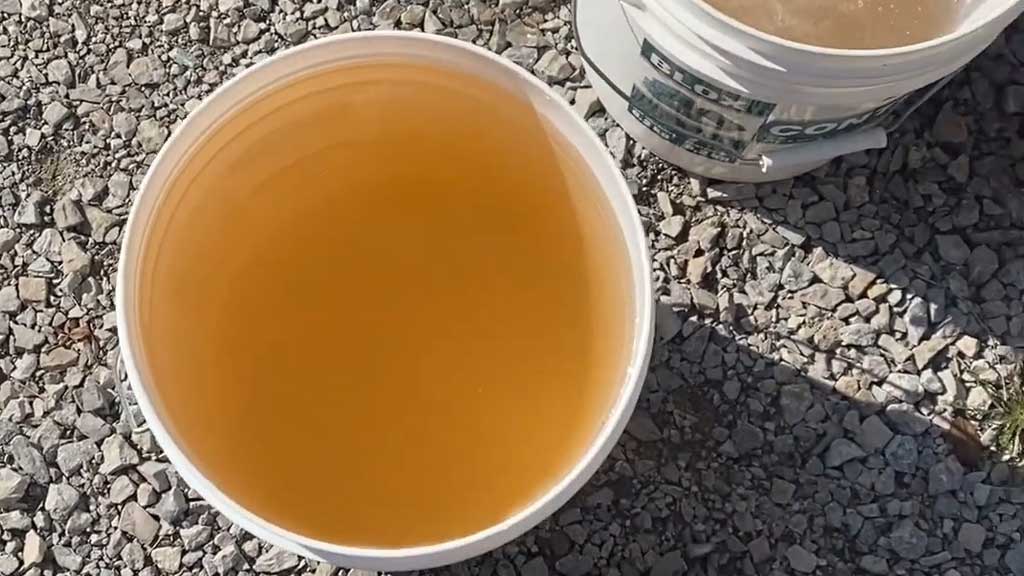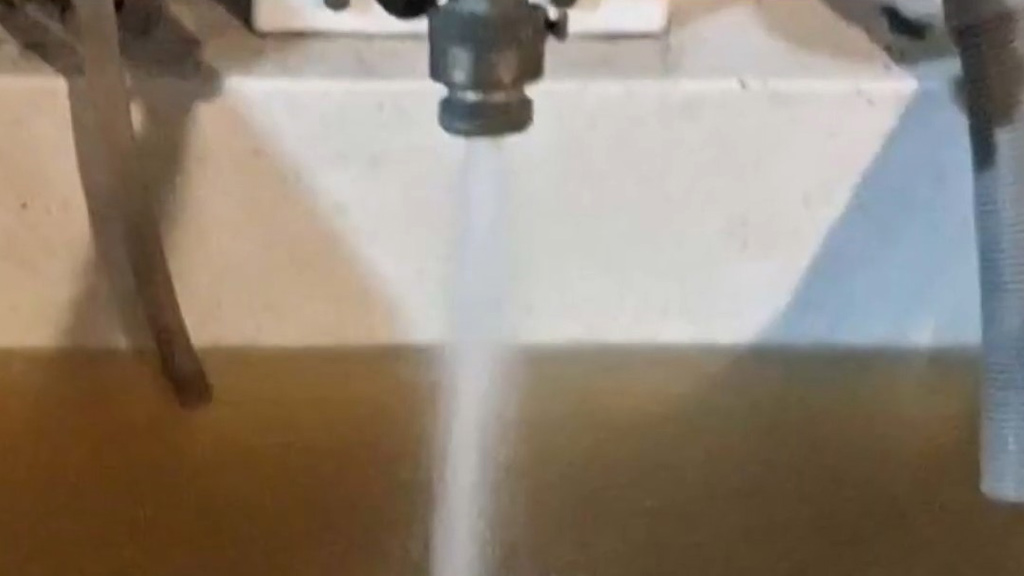Ever turned on your tap in Worcester only to be greeted by a stream of brown water? You’re not alone. Recently, a water main break at the intersection of Grafton and Maranda streets caused quite a stir among residents, leading to discolored water in nearby homes.
This isn’t an isolated incident routine maintenance and repairs on underground pipes often disrupt water flow, stirring up sediment that can turn your water brown.
While it’s unsettling to see, brown water is often a temporary issue. City officials recommend running your taps to flush out any sediment.
However, some residents have noted that this method doesn’t always solve the problem immediately, raising concerns about the frequency and persistence of the discoloration.
Understanding the causes behind this issue can help you better navigate these occasional water woes.
Common Reasons for Brown Tap Water in Worcester
Brown tap water in Worcester can be a cause for concern, and several factors could contribute to its discoloration.
Here are the common reasons:
Changes in Water Pressure
Changes in water pressure often lead to brown tap water in Worcester. Routine maintenance, repairs, and water main breaks can disturb the sediment in pipes.
When the pressure fluctuates, it stirs up dirt, rust particles, and other sediments, which then enter your tap water. This disruption can occur suddenly, possibly overnight, significantly affecting water clarity.
Additionally, aging infrastructure is a contributing factor. Older pipes, especially those made from iron, are more prone to corrosion, which releases rust into the water supply.
Regular municipal testing, however, ensures the water remains safe to drink despite occasional discoloration. If you notice persistent changes, consider using a water filter.
Aging and Corroding Water Pipes

Aging and corroding water pipes are another common reason for brown tap water. Worcester’s water infrastructure, like many older cities, faces issues related to corrosion and build-up inside pipes.
As pipes deteriorate over time, they release rust and debris into the water supply. This rusty water appears brown and can fluctuate based on the pipe’s condition and external disturbances.
Additionally, heavy rainfalls or nearby construction work can further disrupt the water flow, causing sediments to mix into the water.
Regular maintenance and upgrades to the water system are essential to mitigate these issues and ensure safe drinking water for residents.
Environmental Influences on Water Sources
Environmental factors, such as temperature changes and heavy rainfall, impact water quality. For instance, manganese levels naturally rise in warm weather, leading to brownish water.
Heavy rains can also cause runoff that disturbs sediments in the water system, further contributing to discoloration.
Monitoring these influences can help you understand natural cycles affecting water clarity. Additionally, aging infrastructure plays a significant role.
Rust from old pipes often mixes with the water, causing it to appear brown. Regular pipe maintenance and infrastructure updates are essential for mitigating this issue and ensuring safe drinking water for residents.
By combining an awareness of environmental factors with proactive measures, Worcester can better manage its tap water quality.
Filtration System Failures
Filtration system failures disrupt water treatment and cause discoloration. If a municipal treatment plant experiences issues, untreated or partially treated water with sediments and impurities might reach your taps.
Regular maintenance of filtration systems is crucial to prevent these contaminants from affecting your water quality. Moreover, aging infrastructure can also contribute to the problem.
Corroded pipes release rust and other particles into the water supply, leading to discoloration. Residents should report any brown water occurrences to local authorities to ensure prompt investigation and resolution.
Impact of Water Quality on Daily Life
Water quality plays a significant role in daily life, impacting various aspects of health, hygiene, and overall well-being.
Here’s a breakdown of its impact:
Effects on Health and Safety

Rust in tap water, although not harmful to drink according to the Massachusetts Department of Environmental Protection, can still affect health indirectly.
Rust particles can create a higher risk of bacterial growth in your water, which might lead to potential health concerns if ingested over time.
When using tap water for cooking or washing food, rusty water can impact the taste and visual appearance of your meals, making them less appetizing.
It’s important to note that while rusty water isn’t immediately dangerous, poor water quality can sometimes mask more severe issues, such as lead contamination, requiring regular water quality checks for safety.
Impact on Household Appliances and Plumbing
Brown tap water can significantly impact your household appliances and plumbing systems. Appliances like washing machines, dishwashers, and water heaters become less efficient when sediment and rust particles accumulate.
These particles can clog filters and valves, leading to costly repairs or replacements. In plumbing systems, rust and sediment can corrode pipes, causing leaks and reducing water pressure.
Regular maintenance and flushing of your water systems can help minimize these issues. Consider investing in water filtration systems to protect your appliances and plumbing from the effects of low-quality water.
How Worcester Addresses Water Discoloration
Addressing water discoloration in Worcester requires a multifaceted approach involving monitoring, maintenance, and communication with residents.
Here’s how Worcester could address this issue:
Water Treatment and Filtration Efforts
Worcester prioritizes water treatment and filtration to tackle discoloration. The Water Department employs advanced filtration systems to remove sediments, rust particles, and other contaminants.
Regular maintenance and monitoring ensure these systems function optimally. When water main breaks occur, causing brown water, crews promptly repair the damage and flush the system to restore water clarity.
Regular sampling and quality checks, guided by standards from the Massachusetts Department of Environmental Protection, help maintain water safety.
Infrastructure Improvements and Maintenance
Worcester continually invests in infrastructure improvements to prevent water discoloration. Aging pipes are replaced to reduce rust and sediment buildup, and water mains are regularly inspected for potential issues.
Swift response to incidents like the 725 Grafton St. water main break minimizes disruption. Maintenance activities like pipe cleaning and valve exercising ensure optimal water flow and quality.
These efforts, combined with public advisories and transparent communication, help address and prevent water discoloration, ensuring residents receive clean, safe water.
Tips for Residents Experiencing Brown Water
If Worcester residents are experiencing brown water, it’s essential for them to take certain precautions and actions to mitigate the issue.
Here are some tips:
Immediate Steps to Take
Flush your taps. Run your cold water tap for 5-10 minutes to see if the brown water clears. Use the lowest tap in your house, like a basement sink.
Avoid hot water. If the water remains discolored, avoid using your hot water tap until the issue is resolved to prevent drawing sediment into your water heater.
Use a filter. If available, use a water filter certified to remove contaminants from drinking water.
Inspect plumbing. Check your internal plumbing for signs of corrosion or leaks, as internal pipe issues can contribute to water discoloration.
Limit water usage. Until the water clears, minimize activities that require large amounts of water, like laundry or dishwashing, to avoid staining and contamination.
When to Contact Local Authorities
Prolonged discoloration. Contact local water authorities if the discoloration persists for more than 24 hours after flushing your taps.
Health concerns. If you experience any health symptoms after using discolored water, such as skin irritation or gastrointestinal issues, notify health services and local water authorities.
Neighborhood reports. If your neighbors also report brown water, it’s likely a community-wide issue, and local authorities need to investigate.
Water main breaks. If aware of recent water main repairs or breaks in your area, inform authorities as they may need to address specific sections of the water supply.
By following these steps and contacting the appropriate authorities when necessary, you help ensure the safety and quality of your household water supply.
Frequently Asked Questions
What causes brown tap water in Worcester?
Brown tap water in Worcester is usually caused by water main breaks, aging pipes, or filtration system failures. These issues stir rust and sediment into the water supply.
Is brown tap water safe to drink?
Brown tap water typically contains rust and sediment, which are not harmful but can affect taste and quality. It is generally advised not to drink it until it clears up.
How can I clear brown water from my tap?
Run the cold water tap at a trickle until the water clears. Avoid using hot water, as this can draw sediment into your water heater.
How long does brown tap water last?
Brown tap water usually clears up within a couple of hours but can sometimes take several days.
Conclusion
Brown tap water in Worcester can be unsettling, but understanding the causes and knowing how to address it helps you better manage the situation.
Typically, rust and sediment are the primary culprits, often stirred up by water main breaks, aging infrastructure, or repairs. These particles give the water its brown, yellow, orange, or red tint.
Water main breaks, like the recent one on Grafton Street, are a common cause. Such incidents disrupt the normal flow, dislodging rust from pipes.
Although unsightly, the Massachusetts Department of Environmental Protection assures that discolored water usually isn’t harmful. Running cold water for about 10 minutes often clears it up, restoring clarity.
Timothy Russell Dewart